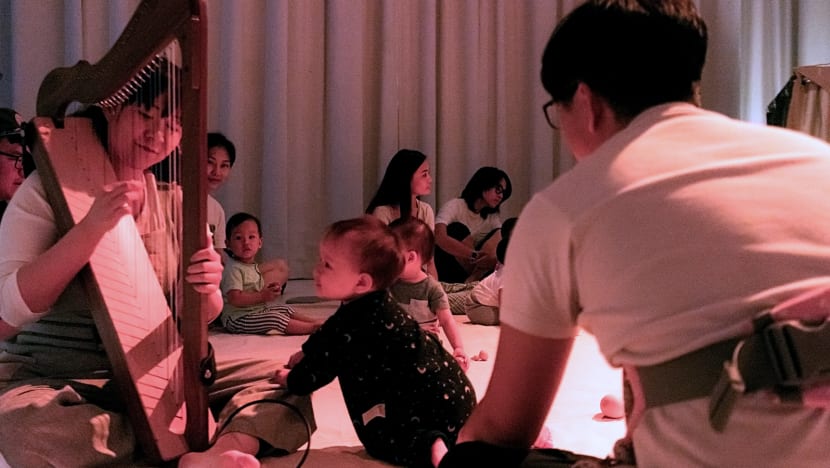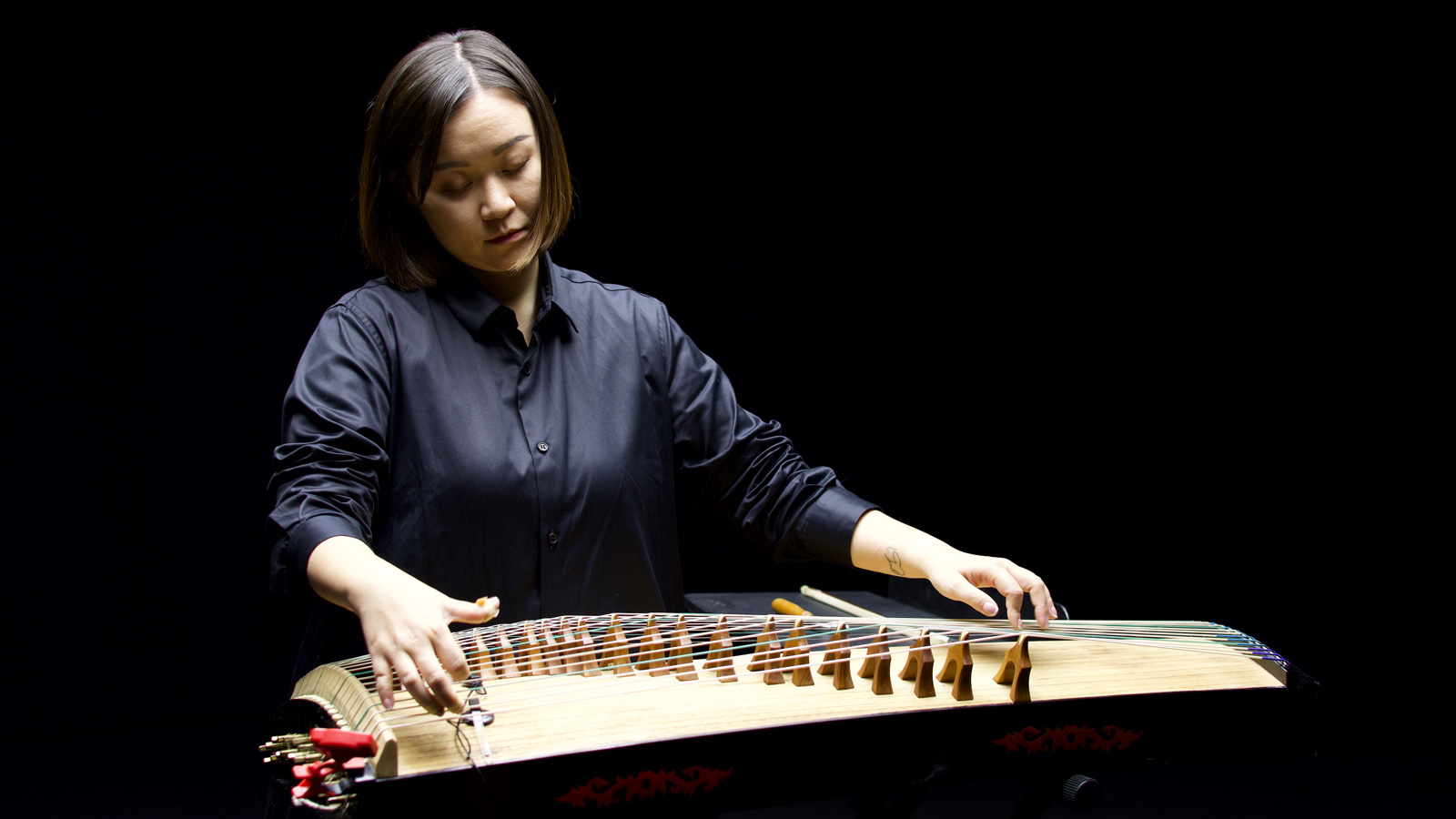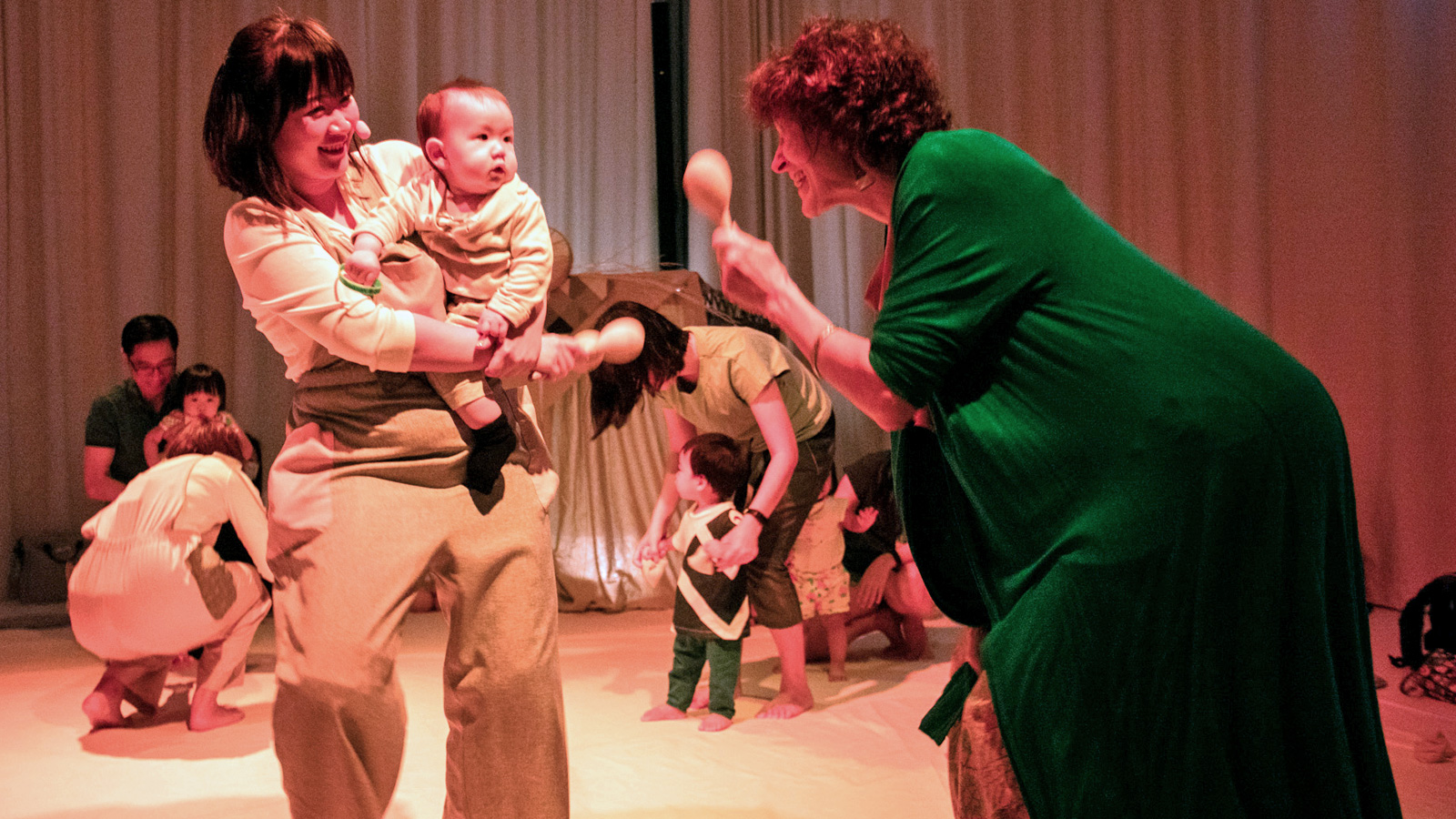Lifelong learning for a performer-educator working with little ones
A desire to learn more about how young children experience music and sonic objects led Dr Natalie Alexandra Tse to her Doctor of Philosophy (PhD) studies at the National Institute of Education, Nanyang Technological University, Singapore (NIE NTU, Singapore).

The thesis for her PhD studies at NIE centred around research into babies’ sonic play, says Dr Natalie Alexandra Tse (far left). Photos: Dr Natalie Alexandra Tse
While studying for her Master of Arts in Music in Hong Kong, Dr Natalie Alexandra Tse drew on her natural affinity for kids by working as an early childhood music and movement educator, teaching babies as young as six months old to seven-year-old children. “The music lessons were fun, engaging and playful,” she recounted. “It was a very different experience from my own childhood learning music.”
Upon her return to Singapore, however, she was dismayed to find that such classes for children were few and far between. While working as a music educator for kids in a private setting, Dr Tse decided to develop her own artistic practice as a guzheng improviser and experimenter, exploring the use of technology like guitar and bass pedals on the traditional Chinese instrument. This led to her co-founding the arts organisation SAtheCollective – a non-profit, multicultural performing arts company. Embarking on this venture also made her realise that audiences were best captured at a young age.
“We need to develop our audiences young, so that they can be receptive and responsive to a diversity of sounds,” she explained. “This has to do with having a keen ear for mindful, active or deep listening, where one listens to sonic qualities of objects with some level of criticality.”
FINDING HER PASSION, AND A RESEARCH TOPIC
With this goal in mind, Dr Tse went on to co-found LittleCr3atures, where she serves as artistic director. LittleCr3atures offers a safe and immersive space for young ones to experience playing with and exploring sound and sonic objects.
“Initially, I was thinking about children at nursery level and how culturally diverse music and instruments could be brought to preschools,” she said. “As I experimented with different experiential designs for the early years, I found myself drawn to the natural competence of babies to explore sensorially.”
This developing fascination eventually became the subject of her research thesis. While setting up LittleCr3atures, Dr Tse was also enrolled in her PhD studies from August 2016 to June 2021 at the Visual and Performing Arts Academic Group at the National Institute of Education, Nanyang Technological University (NIE NTU, Singapore).
Dr Tse’s thesis centred around research into babies’ sonic play. “My PhD and work are intertwined,” she said. “It’s a symbiotic relationship. My work is my artistic practice, which informs the research, as much as my research informs my artistic practice.”
A MENTOR BEYOND HER PHD

Dr Tse chose to enrol in NIE NTU, Singapore primarily because of her mentor, Associate Professor Lum Chee Hoo, who coordinates the Master of Education (Music) programme and is head of the UNESCO-NIE Centre for Arts Research in Education. Earlier in her studies, Dr Tse had encountered many papers either written or edited by Assoc Prof Lum, and she reached out to him for advice on pursuing further education in her areas of interest.
“I wanted to learn and better myself,” said Dr Tse. “NIE was a natural choice of institution for me as I already knew Dr Lum and our research interests aligned. Even though I’ve since graduated, Dr Lum remains my mentor figure and our mentor-mentee relationship continues. He supports my initiatives by being a third eye and ear for the programmes I run, which are aligned to my research interests.”
Besides the influence of Dr Lum, she recalled an open-minded culture and receptiveness to new ideas as being part of NIE’s Visual and Performing Arts Academic Group. “The academic staff across the art forms of theatre, visual arts and music are critical ideating bouncing boards for any subject matter,” she explained. “The culture of research is rigorous and supports open discussion for the consideration of progressive ways of working.”
COMBINING WORK, FAMILY AND LEARNING

Running two arts organisations and juggling her PhD studies were made more intense for Dr Tse with the birth of her two children, one in the second year of her PhD and another in her fourth year.
While challenging, she says that her children are also her greatest blessing – one that extends to her work and studies, as the arrival of her firstborn spurred her research into the creation of sonic experiences for babies. For instance, she delved into Chinese and Indian philosophies that relate to concepts of nature in experimental music. This resulted in the creation of her baby-oriented sonic experience Nadam, which means “sound” in Sanskrit.
For Dr Tse, family, work and research are all simply different facets of her lifelong interest in music, play and sound. “I don’t think we ever stop learning,” she reflected. “In research, one needs to truly be passionate, critically inquiring and curious. Resonating with my own work with and about children, I think learning is really about being able to have a sense of wonder and a playful attitude towards life.”
She added: “In a society like ours, perhaps many have forgotten this sense of wonder and play. Lifelong learning may be a way to rekindle some of those moments in our lives where our hearts felt full because we acquired new knowledge.”
Application for NIE’s August 2022 intake is open from now till Jan 31, 2022.















